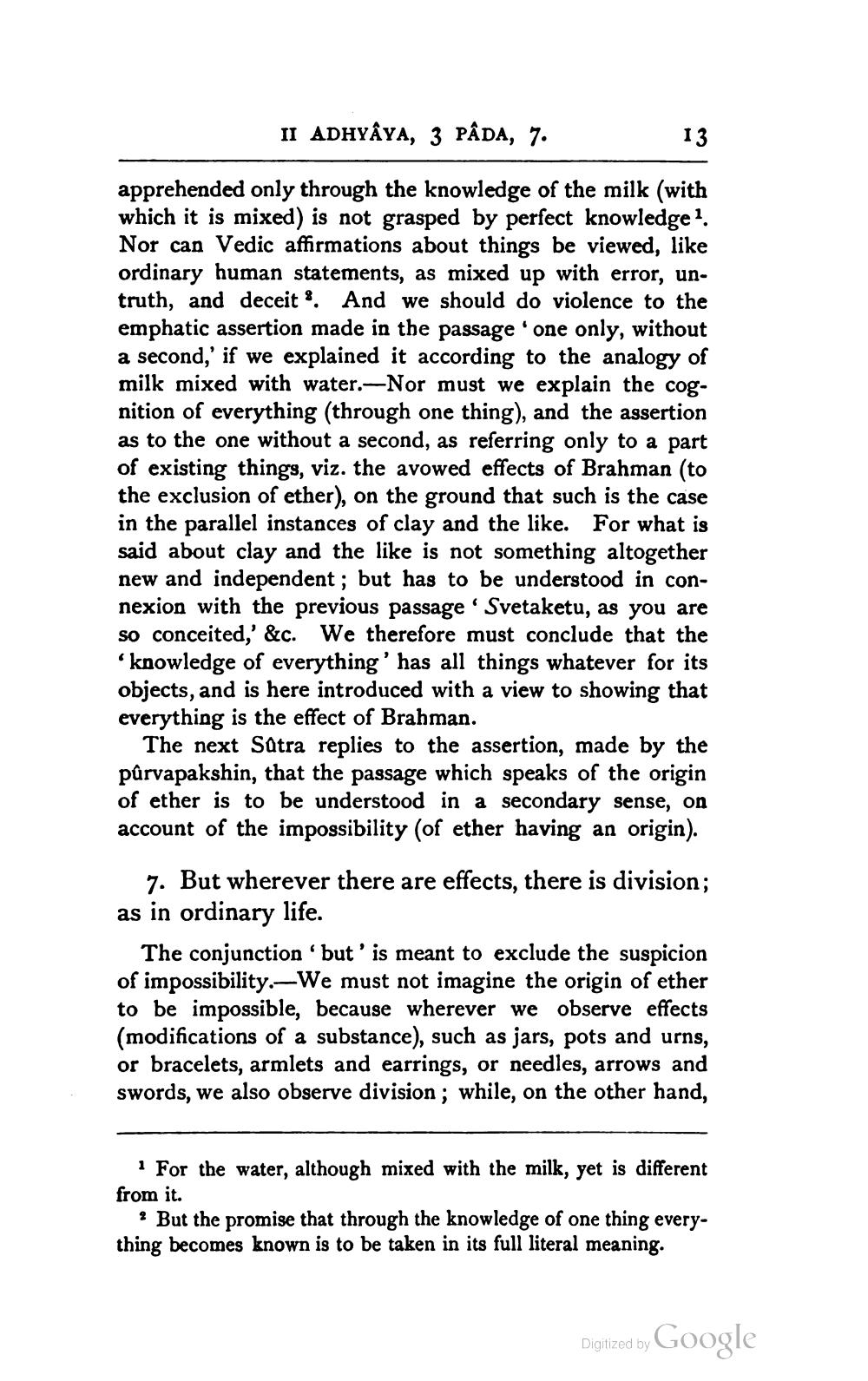________________
II ADHYÂYA, 3 PÂDA, 7.
13
apprehended only through the knowledge of the milk (with which it is mixed) is not grasped by perfect knowledge 1. Nor can Vedic affirmations about things be viewed, like ordinary human statements, as mixed up with error, untruth, and deceit S. And we should do violence to the emphatic assertion made in the passage one only, without a second,' if we explained it according to the analogy of milk mixed with water.-Nor must we explain the cognition of everything (through one thing), and the assertion as to the one without a second, as referring only to a part of existing things, viz. the avowed effects of Brahman (to the exclusion of ether), on the ground that such is the case in the parallel instances of clay and the like. For what is said about clay and the like is not something altogether new and independent; but has to be understood in connexion with the previous passage Svetaketu, as you are so conceited,' &c. We therefore must conclude that the 'knowledge of everything' has all things whatever for its objects, and is here introduced with a view to showing that everything is the effect of Brahman.
The next Satra replies to the assertion, made by the pûrvapakshin, that the passage which speaks of the origin of ether is to be understood in a secondary sense, on account of the impossibility (of ether having an origin).
7. But wherever there are effects, there is division; as in ordinary life.
The conjunction 'but' is meant to exclude the suspicion of impossibility.-We must not imagine the origin of ether to be impossible, because wherever we observe effects (modifications of a substance), such as jars, pots and urns, or bracelets, armlets and earrings, or needles, arrows and swords, we also observe division; while, on the other hand,
* For the water, although mixed with the milk, yet is different from it.
? But the promise that through the knowledge of one thing everything becomes known is to be taken in its full literal meaning.
Digitized by
Digilzed by Google




